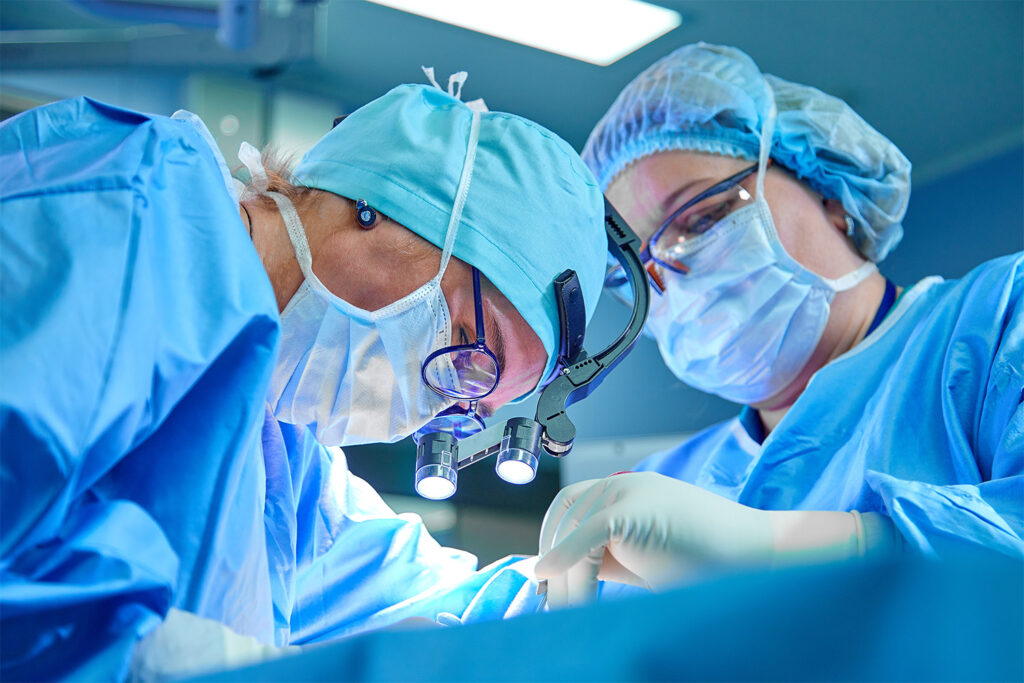Even though surgery can be scary, the results are often worth it. The best way to ensure great results is to follow your surgeon’s instructions both before and after the procedure. And while the exact instructions will vary based on the procedure and your individual risk factors, here are some things that you can expect to avoid before and after surgery:
What To Avoid Before Your Surgery
Depending on your surgeon’s instructions, here are six things that you should avoid before your surgery and why:
1. Eating
You should not eat anything in the eight hours before your scheduled surgery time. Many surgeries are scheduled early in the morning to make this period of fasting easier on you.
It’s important to avoid eating before surgery to avoid potential complications. Your bodily reflexes don’t work as they normally would when you’re under anesthesia. So there’s a potential for aspiration if any food comes up from your stomach and into your throat. If food gets trapped in your throat, it could end up obstructing the airways in your lungs.
2. Drinking
You should also not drink heavy liquids like milk in the eight hours before your scheduled surgery time for the same reason you shouldn’t eat. However, you may be allowed to drink clear liquids like apple juice, coffee, and tea up to two hours before your surgery time. Additionally, you may be permitted to drink small sips of water to take any pre-operative medications.
3. Medications
You should not take certain medications before your surgery. You should stop taking aspirin and non-steroidal anti-inflammatory medications (NSAIDs) like Advil, Motrin, Aleve, and ibuprofen seven days before your surgery. You should also stop taking any anticoagulants and blood thinners including Coumadin, Eliquis, Warfarin, and Plavix at least five days before your surgery.
4. Supplements
You should also stop taking any supplements before your surgery. For example, you should stop taking Vitamin E, Vitamin C, Vitamin K, B Vitamins, and fish oils seven days before your surgery. You will likely need to stop taking your daily multivitamin seven days before surgery. Additionally, you should stop taking all herbal supplements at least seven days before surgery.
5. Smoking
Smoking before surgery can significantly increase the likelihood of complications. So to reduce the chance of any complications, most surgeons recommend that you stop smoking four to six weeks before your surgery. Smoking in the two weeks before your operation could cause your surgeon to cancel your procedure due to increased risks.
6. Shaving
Shaving could also potentially lead to surgical complications as you may end up with microscopic cuts in the skin that can lead to infections. Stop shaving about 48 to 72 hours before surgery for the best results. Also, consider using an electric razor to avoid creating those microscopic cuts in the first place.
What To Avoid After Your Surgery
Now that your surgery is over, here are six things that you should avoid after your surgery and why you should avoid them:
1. Bathing
Depending on the specific procedure performed, you should plan on waiting between 48 and 72 hours to bathe after surgery. At that time, you should take a shower instead of a bath to minimize the risk of infection.
2. Swimming
On a similar note, you should avoid swimming for an extended period after surgery. The exact time depends on the nature of the procedure. As a general rule of thumb, you should avoid submerging the surgical site in water for at least two weeks after the procedure. However, you should avoid actual swimming for six weeks after surgery.
3. Exercise
You should also avoid exercise in the weeks after your surgery. While it’s generally safe and even encouraged to get up and walk around during your recovery, it’s not safe to engage in strenuous physical activities.
Strenuous physical activities may cause you to tear your incisions and lead to complications. This means no running, biking, swimming, or aerobic exercises. You should also avoid lifting weights or any heavy objects for at least six to eight weeks after your procedure.
4. Alcohol
You should avoid drinking alcohol in the weeks after your surgery for several reasons. For starters, you should not mix alcohol with pain medications, which you will likely be taking after your procedure. Additionally, alcohol can worsen your swelling and cause it to last longer than it otherwise would.
5. Smoking
It’s also strongly recommended that you avoid smoking cigarettes in the weeks after your surgery. Smokers are already at a higher risk of complications during and after the surgery, so it’s important to stop smoking to lower these risks effectively.
For example, smokers are 3.3 times more likely to develop wound infections after a breast reduction surgery than non-smokers. Smokers are 13 times more likely to develop skin necrosis after a facelift procedure than non-smokers.
6. Shaving
You’re also supposed to avoid shaving after surgery for the same reasons you’re supposed to avoid it before surgery — to reduce the risk of infection in micro-cuts and microabrasions. So while you can shave the other areas of your body that the surgeon didn’t operate on, you should not shave on or around your incision site for at least two weeks after surgery. If you can wait longer than two weeks, that’s even better.
Final Thoughts
The whole purpose of these instructions is to minimize the risk of surgical complications and infections. However, another way to minimize your surgical risks is to choose an experienced and board-certified plastic surgeon like Dr. Applebaum.
With decades of experience, Dr. Applebaum achieves incredible results for his patients with a low risk of complications thanks to innovative and minimally-invasive techniques.
Sources:
The Night Before Your Surgery | MedlinePlus
Smoking: Surgery Risks & Anesthesia Complications | American Society of Anesthesiologists

